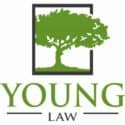Placing your real estate investment into an LLC in Virginia.
Let’s face it, we live in an extremely litigious society. The cost of litigation, and/or fulfilling a judgment, can devastate someone who holds real estate investments. It is important to ensure that your investment properties will be safe in the event that you are personally sued. My recommended tactic for protecting your properties is to form an LLC (limited liability company) and transfer ownership into the name of the LLC only. There are many benefits for doing this, no matter whether you are a solo investor or if multiple investors are involved.
Flexibility & Favorable Tax Treatment of an LLC
In Virginia, in addition to LLC ownership, property may also be held in the name of a limited partnership or a corporation. However, an LLC offers the best of both worlds. Under a limited partnership, only the assets of the limited partners are protected. The assets and investments of general partners are fair game when collecting on a judgment. Corporations offer a shield from liability to all shareholders in the majority of instances. However, the largest downside to most forms of corporations is that they are taxed two times; once at the corporate level and another time when profits are paid out to shareholders.
LLCs may be structured similarly to a general partnership or a limited partnership. The operating agreement for the LLC, similar to a partnership agreement, may state that certain members are managers, while others are merely passive members (similar to a limited partner). Further, LLCs are taxed like partnerships, with all profits flowing through to the investors.
Liability Protection of an LLC
In order for an LLC to effectively shield the investors from liability, it is important that they do not disregard the separate identity of the LLC. If a court were ever to find that the members treated the LLC as an extension of themselves (ultra vires), the court would likely allow the creditor of an individual member to “pierce the corporate veil” and seize the assets of the LLC.
Only investment or business property should be held in the LLC’s name. For example, the personal residence of a member should never be held in the name of the LLC. A trust would be a more appropriate liability protection plan for a personal residence. In order to be protected from liability, it is important that the LLC be treated as a distinct business entity.
It is important to remember that a Virginia court will look to whether the LLC was formed solely for the purpose of protecting property from impending litigation or creditors. If the court finds that the assets were shifted solely for this purpose, they may allow the creditor to seize those assets (as well as hold the drafting attorney liable).
A tactic which ensures the most protection is to form multiple LLCs, one for each investment property that you own. This would ensure that, if you or one LLC were sued, your other properties would be protected.
NOTICE: The above information is general in nature, and is offered to increase public knowledge and awareness. It is not designed to provide advice on specific case situations. Contact Ryan C. Young to explain your unique situation.

